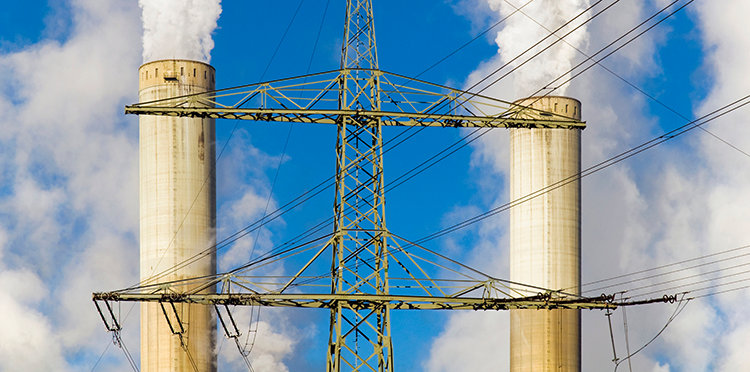Therefore, the overwhelming majority of companies that consume a lot of electricity need not fear that they will lose their privileges. According to the new energy guidelines, States may reduce the burden of the costs of green energy subsidies on certain industries. The guidelines adopted by the EU Commission on 9 April 2014 provide for exemptions of the sort that have already been granted in Germany for the renewables surcharge under the Renewable Energy Act. However, in the future these exemptions will primarily be granted only to companies in certain industries. It is not yet clear which industries will be involved. But the EU Commission has referred to the chemicals industry and paper and ceramics manufacturers. All told, the EU has selected 65 industries for privileged treatment. These guidelines are to remain in effect until 2020.
 © ThinkStock
© ThinkStockWhile approximately 2,100 companies in Germany have benefited from the special treatment to date, it is likely that only 1,600 companies will be able to claim the entire subsidy in the future. The amount of the benefits will not change materially. Companies that are no longer entitled to the privileges in the future will not have to pay the entire renewables surcharge, but only 20%. On the other hand, the EU Commission rejected a general hardship clause.
The EU Commission has apparently decided to not to require repayment of the energy price rebates granted to German industry, as had been feared. In addition, the new more restrictive provisions for the rebates do not have to be fully implemented until January 2018.
However, the agreements reached with the EU are not included in the amendment to the Renewable Energy Act adopted by the Federal Cabinet on 9 April 2014, which provides for subsidy cuts and the expansion of wind energy. The EU Commission's energy guidelines will be implemented in an independent law, which is expected to be introduced into the legislative process in May.
Background:
Drawing on a decision of the Europe Court of Justice (the “PreussenElektra” case), the Commission essentially ruled back in 2002 that the 2000 renewables surcharge did not constitute aid. However, the current investigation pertains to the 2012 renewables surcharge. In the eyes of the European Commission, the 2012 surcharge is substantially different.
After its preliminary investigation, the European Commission held that the promotion of electricity generation through renewable energy sources is compatible with EU state aid rules. However, the Commission has concerns about two aspects of the 2012 renewables surcharge:
- The Commission views the exemption of energy-intensive companies from payment of the renewables surcharge as an advantage that likely distorts competition within the Internal Market and which, based on the detailed descriptions provided within the Renewable Energy Act itself, qualifies as being funded from state resources. At the same time, the Commission considers that the exemptions could be legitimate in order to prevent carbon leakage. Therefore, the Commission will examine whether the exemption is justified and reasonable as well as whether it distorts competition.
- The “green electricity privilege,” a 50% exemption granted for power that is generated from renewable energy sources domestically, appears to discriminate against power that is generated from renewable energy sources and imported. In this respect, the European Commission will investigate the presence of similar measures in foreign promotional schemes.
Germany’s federal government has made it clear on several occasions that it does not believe the Renewables Energy Act violates EU state aid laws. In particular, it holds based on the European Court of Justice’s PreußenElektra decision that the exemption does not qualify as aid that is funded by agencies that are under state control. The federal government also points out that the exemption is used to prevent distortions of competition since electricity prices in other EU states are lower than in Germany.
Unlawful state aid must be paid back with interest. In principle, a claim can be made for recovery of the last ten years’ worth of aid received. However, since the Commission’s investigation is limited to the 2012 renewables surcharge, and does not encompass earlier versions, exemptions granted up to 2012 are beyond dispute.
The investigation procedure can affect the annual financial statements in two ways. On the balance sheet, it may be necessary to form provisions for contingent liabilities, and in the management report it may be necessary to discuss the risks related to the investigation procedure.
According to decisions made by the Bundesfinanzhof (The Federal Fiscal Court), provisions must be formed if it is more likely than not that a liability exists. The reporting company makes this assessment taking into account all available information. Since the European Commission itself points out the uncertainty of the procedure’s outcome, the 2000 renewables surcharge did not constitute aid pursuant to the Preußen-Elektra decision, and Germany’s federal government will exercise its influence in the matter, it seems reasonable to assume that the likelihood that a repayment obligation does exist is no greater than the likelihood that one does not exist based on the information available as of December 19, 2013. Nevertheless, a reconsideration of the information available when the annual financial statements have been prepared will be in order.
Irrespective of whether a provision is formed, the remaining uncertainties must be quantified and discussed in a transparent fashion in the management report so that readers can develop their own picture of the risk situation. There also must be a discussion of the consequences that any recovery of the aid would entail for the company.


